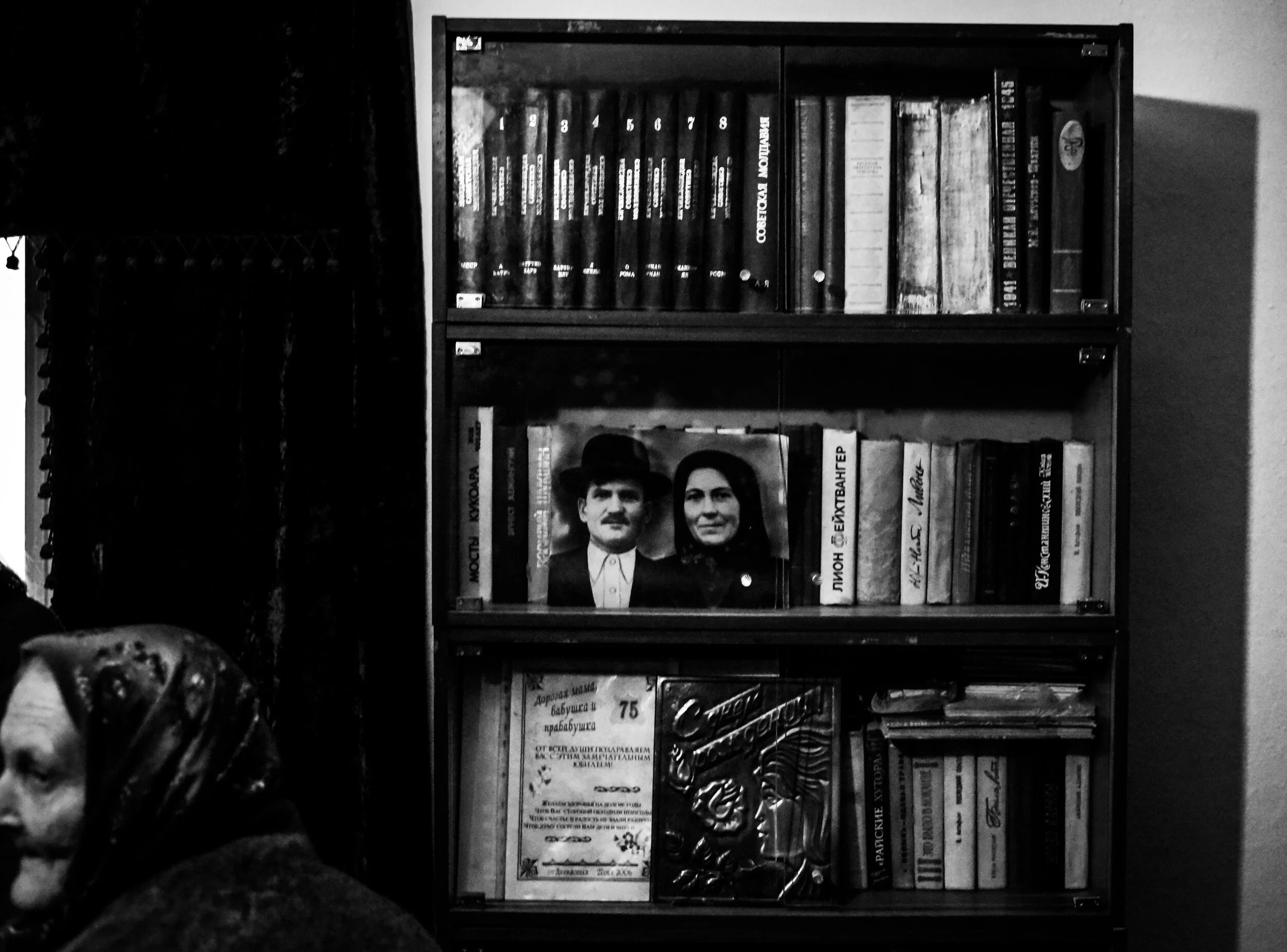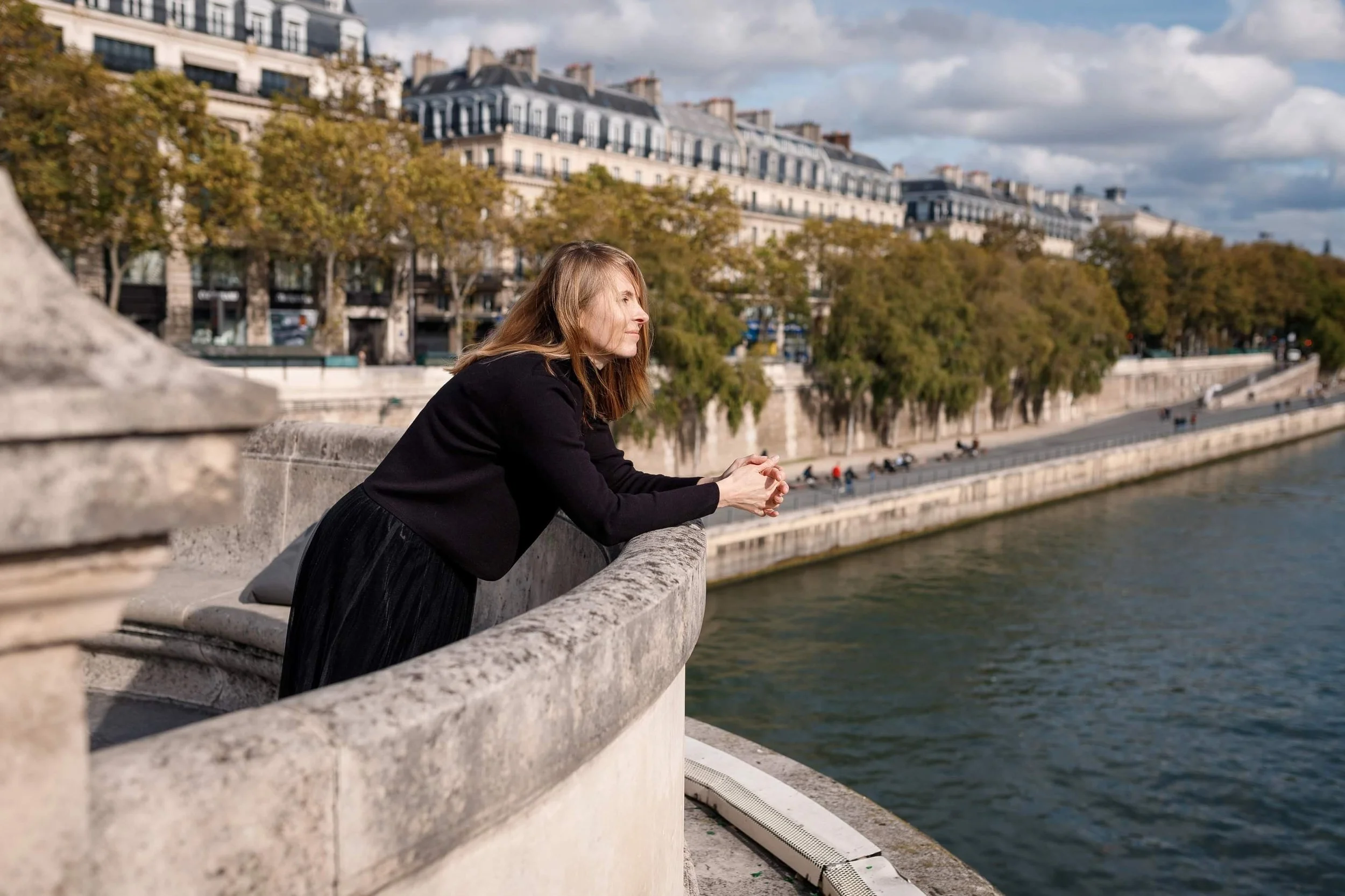
Language, war, and cruelty — an interview with Romanian Moldovan novelist Tatiana Țîbuleac
Interviewed by Paula Erizanu
“My father taught me to read the Latin script before the Cyrillic alphabet. But I wasn't allowed to talk about it at school. But we, the children who read books in Romanian, knew each other. Even if we were not friends, we had a feeling of solidarity with each other.”

A New Wedding Ring
by Iryna Tsilyk
Translated from the Ukrainian by Tetiana Savchynska
I have a recurring dream that has been haunting me in different variations for many years. In it, two people are walking side by side across a vast and snowy field. They carry backpacks (or rather, emergency go-bags) including all that remained from their former peaceful lives. The woman walks ahead of the man, and his big footprints cover hers so that it seems as if just one person has made their way across the field.

In the Presence of a Miracle
by Lyubko Deresh
Translated from the Ukrainian by Dmytro Kyyan
Before the seminar on NOMADLAND, he wrote to me: "Despite everything, I want us to do our work and to do it well." However, it seemed that fate had destined him to face the war head-on for a second time. My mom's call at 5:35am on February 24 woke me from a restless sleep. Before picking up the phone, I already knew what I was about to hear. "Sonny, the war has begun," my mom said through tears. "They are bombing Kyiv."
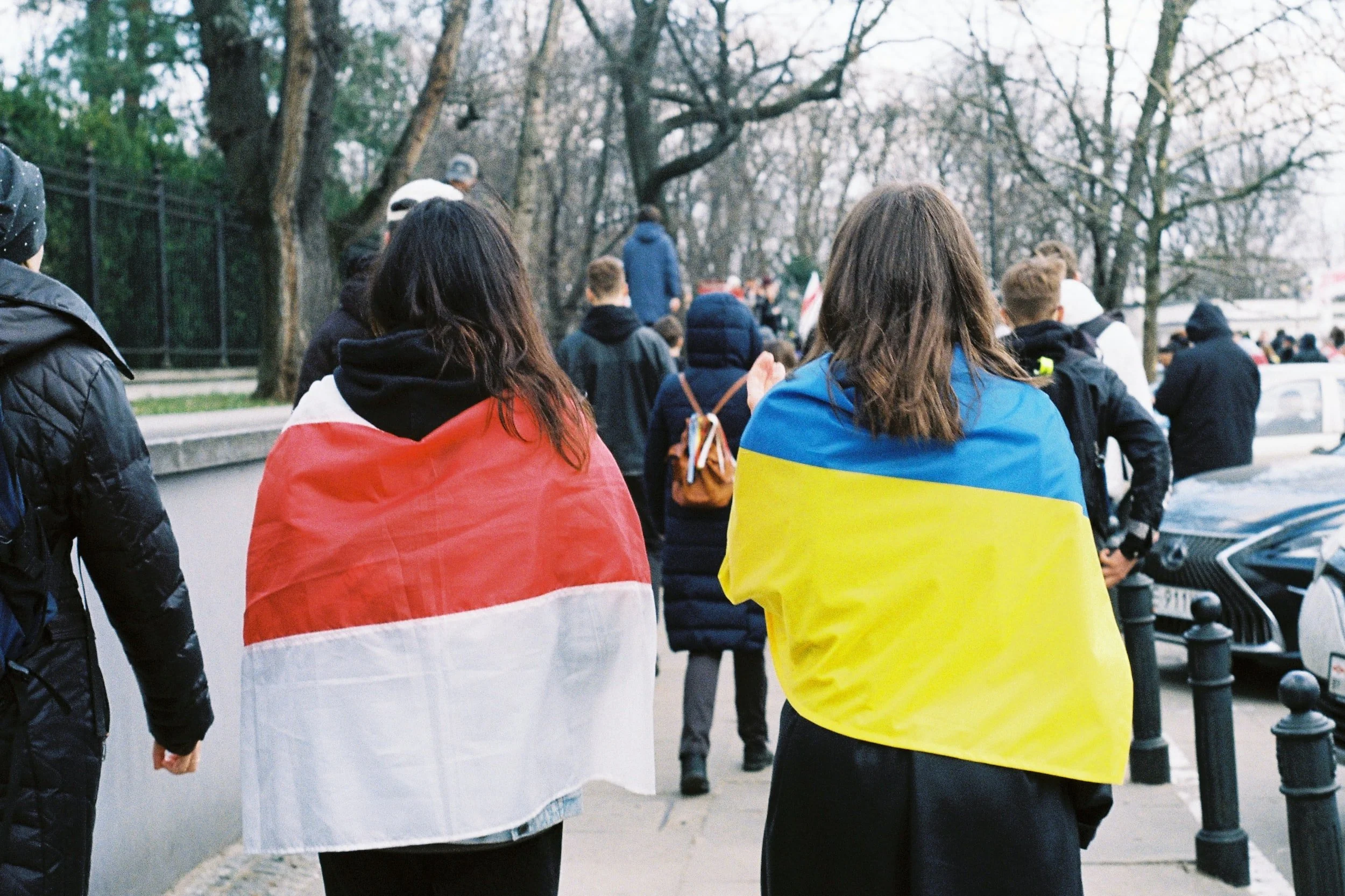
On Being a Good Neighbor
By Agata Tumiłowicz-Mazur
I unfold a map in my mind and spread its crumpled edges wide. I know all my neighbors by heart, and I can say a lot about them. This storytelling is much like sitting down at a spinning wheel and beginning to work with a ball of yarn. You draw out long fibers: some made of stereotypes, followed by the histories you’ve been taught, others from accounts of your loved ones, and, finally, some you’ve experienced yourself.

“Every Ukrainian must do their part”: An Interview with Taras Polataiko
Interviewed by Kate Tsurkan
Everyone was in survival mode, going on very little sleep, adrenaline, and trust. I remember giving a $12,000 drone to the driver who was supposed to drive it to the east of the country. He didn’t want to take money from us when we told him it was for the guys on the front lines.

A Review of Natalka Bilotserkivets’ Eccentric Days of Hope and Sorrow (2021, Lost Horse Press)
Reviewed by Sandra Joy Russell
Emerging as part of the visimdesiatnyky (“eightiers”) generation of Ukrainian poets, Bilotserkivets’ developed her poetic voice during the transitional moment of perestroika—the Soviet Union’s attempt at political and economic reform just prior to its collapse in 1991. Much of her writing reflects this increasingly open, and thereby volatile, political moment.

Remembering Kharkiv
by Olga Breydo
What I do not know during that summer of 2020 is that nearly two years later, I will revisit this paragraph with regret for remembering Kharkiv instead of returning there when I had the chance. For imagining instead of experiencing. Planning instead of doing. And then I will write something again, but this time it will beis a longer piece.

Happy Birthday
By Maryna Prykhodko
My heart sinks. I forgot. For a moment, I forgot—not about the war, which is impossible to forget, but about how close we are to death. It's right there, just tens of kilometers away. It feels wrong to even look at it. The enemy. The country that is trying to kill us. It's so close, looming over my beloved Kharkiv. What gives them the right?
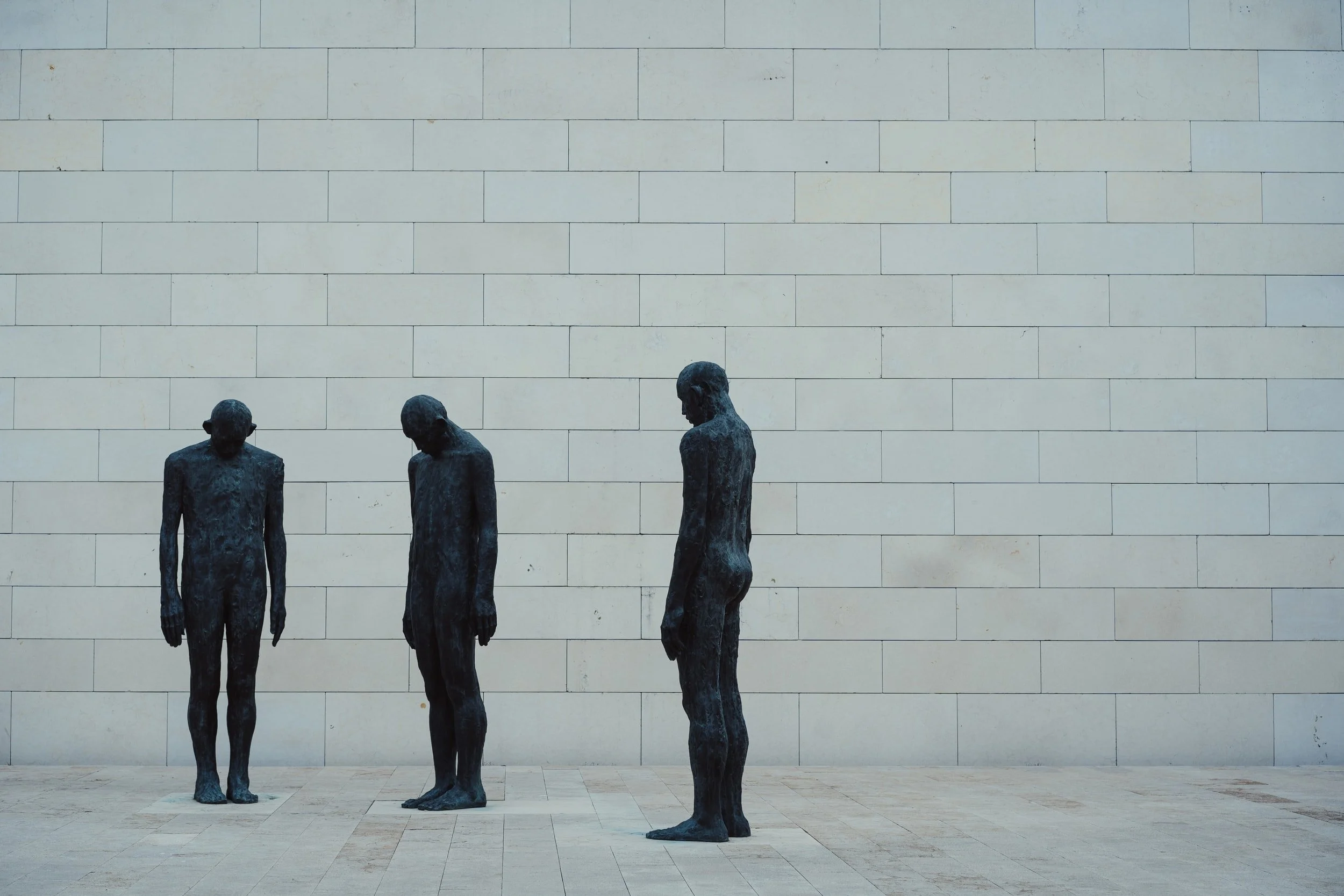
A Time for Irises
by Myroslav Laiuk
Translated from the Ukrainian by Daisy Gibbons
How does our memory work? What does it choose? How do associations arise? How is trauma born and how does it mature? People will be going to therapists and psychiatrists, and even now Ukraine doesn’t have enough specialists in these professions. But first and foremost, each person will have to answer this question alone; many times; late at night.

“Ukraine has never left me”: An Interview with Dmytro Kyyan
Interviewed by Kate Tsurkan
Ukraine entered my life one day in the hot summer of 1980. I was in the Soviet version of a jeep car with my father—speeding up a dusty road through the fields of God knows where in Kazakhstan—when I first heard him sing ‘Chervona Kalyna’. He wasn’t singing the song too loudly, as if it was reserved for himself and no one else…

“It will be wonderful if I no longer have a need to write”: An Interview with Yuriy Tarnawsky
Interviewed by Justina Dobush
I fought against the “rich vocabulary” theory from the beginning. I see no reason why it is necessary to have a large vocabulary to write well. After all, if you don’t know how to use words correctly, it doesn’t matter how many you know. You can use few words, but in a good way, or vice versa—use a lot of words badly.
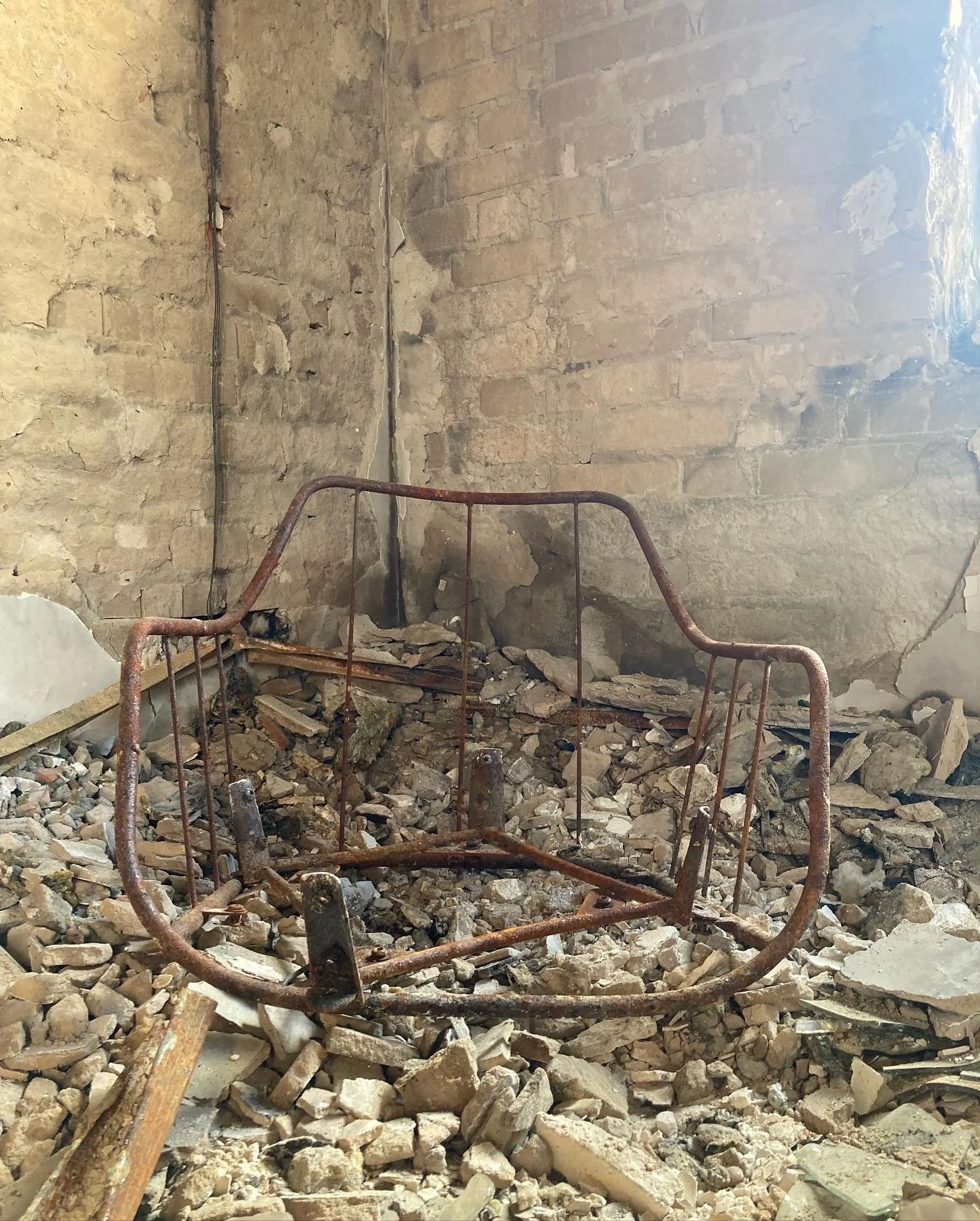
Poppies and Hedgehogs
by Kateryna Iakovlenko
Seeing the photos of my house sent by my neighbors, I saw that nothing was left. I wanted to imagine that there might be my refrigerator where I had left a bottle of pét-nat wine from Odesa. I thought it would be a lovely “welcome home” drink, after all. Instead, only emptiness awaited me–dust and ashes.
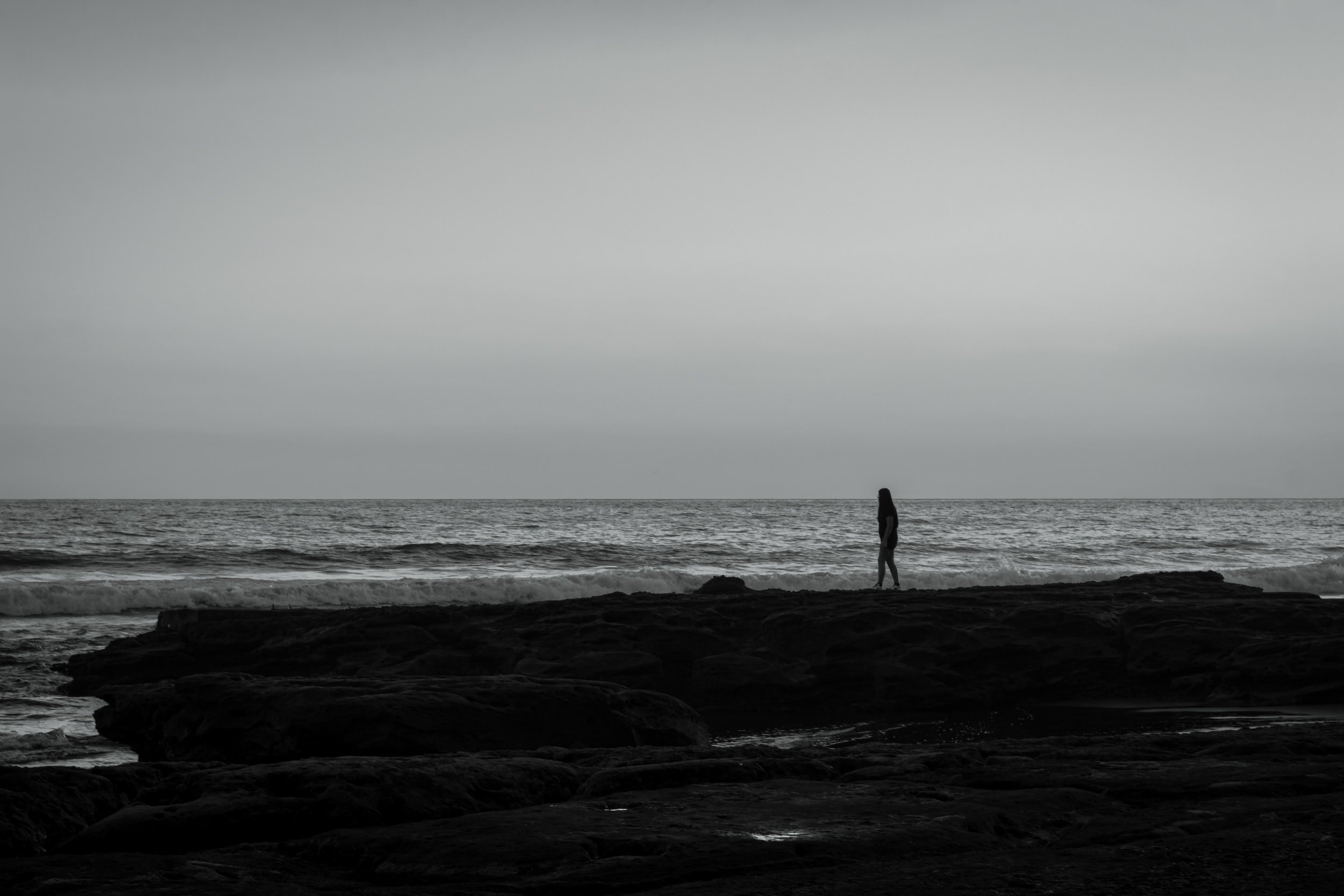
Ortigia, the Sea, and War
by Natalia A. Feduschak
According to another book I read, there was once a thriving lemon trade between Sicily and the western Ukrainian city of Lviv, now home to hundreds of thousands of Ukrainian refugees. I’ve thought of that trade when I purchase lemons from my regular vendor here at the local bazaar, although learning more about it doesn’t hold the interest it once might have.
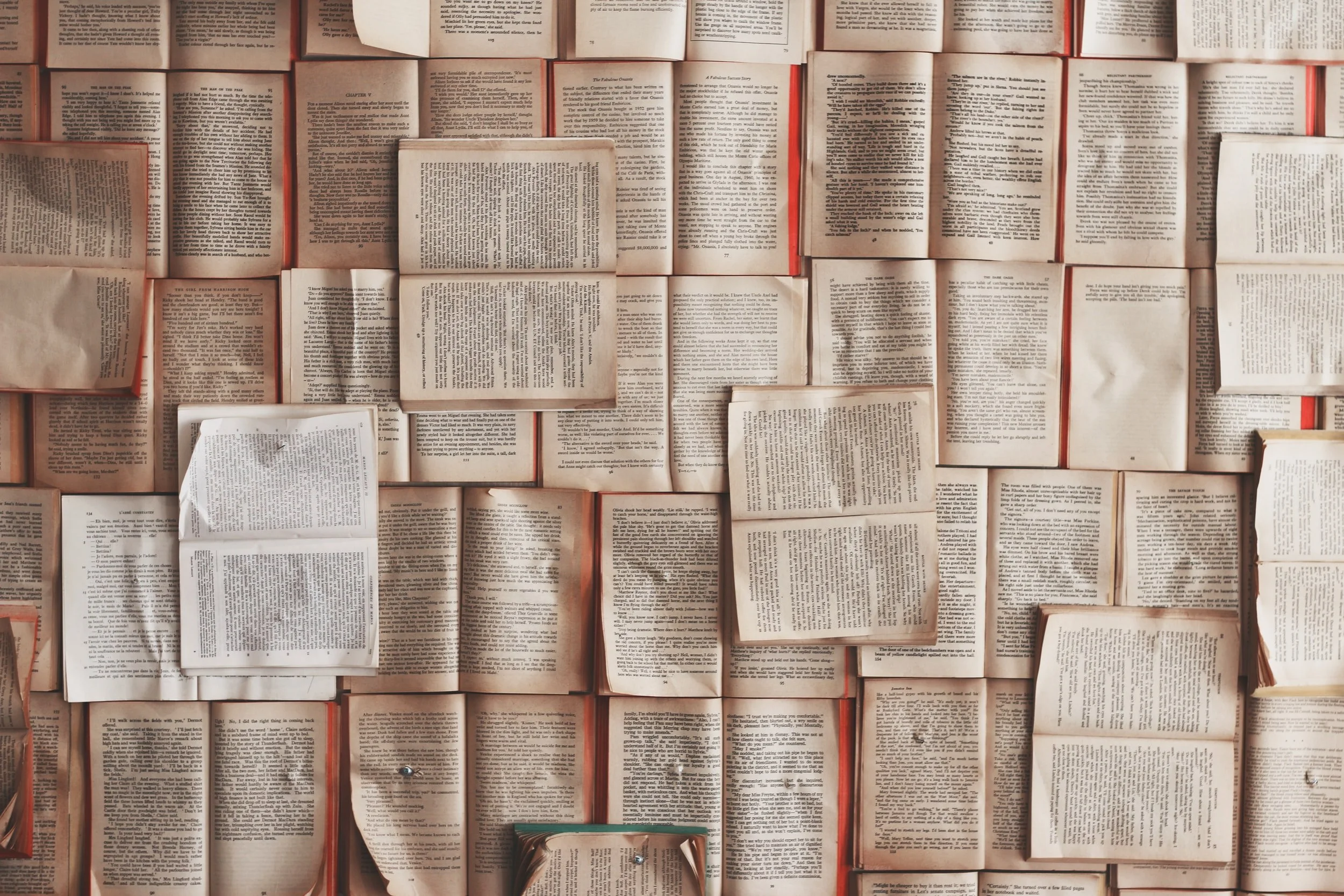
The Language of Home
by Mariya Mykhaylova
Russian will always be my mother tongue, but Ukrainian is my homeland’s tongue. For me, at this moment, it is not about saying no to Russian–it is about saying yes to Ukrainian. I do not know what my future holds. For now, I stick to learning Ukrainian day by day as a way to feel whole.

“War is our destiny”: An Interview with Yaryna Chornohuz
Interviewed by Justina Dobush
I have just managed to write two texts that I do not know when I will share, because in general there is this feeling as if nothing can convey your pain, nothing can convey what you experienced. But I understand that neither I nor others have the right to remain silent for a long time. Since voice and language are what have always saved us and Ukraine, without it there is no way.

“I see politics through a literary and poetic lens”: An Interview with Vladislav Davidzon
Interviewed by Kate Tsurkan
I would admit that I used to feel torn between the disciplines when I was very young and I wanted to do everything all at once. And hard and fast! If you are interested in art and current events and literature and history as I was as a student, making one's way into journalism is the obvious choice on a certain level.

Three poems from the cycle “Vacate the Premises”
by Iryna Starovoyt
Translated from the Ukrainian by Grace Mahoney
New tenants will sit on my couch, cuddle each other.
The woman is beautiful, pregnant.
They will drink tea from my cups, will light my candles.
Only Ursa Major, the Great Mama Bear, asks:
Who’s been sleeping in my bed? Something’s not right,
what’s gone wrong here…?

"A Home to Freedom" and other poems
by Yuliya Musakovska
Translated from the Ukrainian by Olena Jennings and the author
The war that you've been carrying
in your shirt pocket
gnawed a hole in you as if it were a fox.
Your heart keeps falling out.
I am sewing the hole shut,
firmly holding the edges together
with my numb, unbending fingers.

“I'm inspired daily by the people of Kharkiv”: An Interview with Yuliya Iliukha
Interviewed by Liliia Shutiak
What most westerners think of war is something out of Remarque's novels. That is, they imagine a war is going on somewhere, but people still manage to go to theaters, cafes, drink calvados, and walk along the Seine. We do not have that luxury in Kharkiv.

Living with the air raid siren in wartime Ukraine
Since the start of the Russian invasion on February 24, the air raid siren has become an unfortunate staple of everyday life in Ukraine. We collected testimonies from people of various backgrounds throughout Ukraine, in order to present a psychological portrait of living with the air raid siren — or rather, in spite of it — during wartime.
